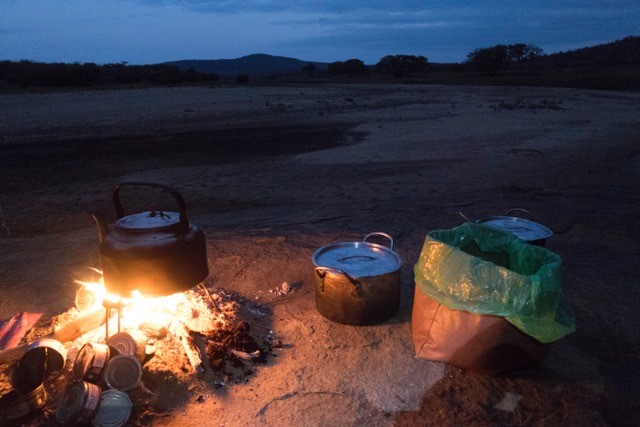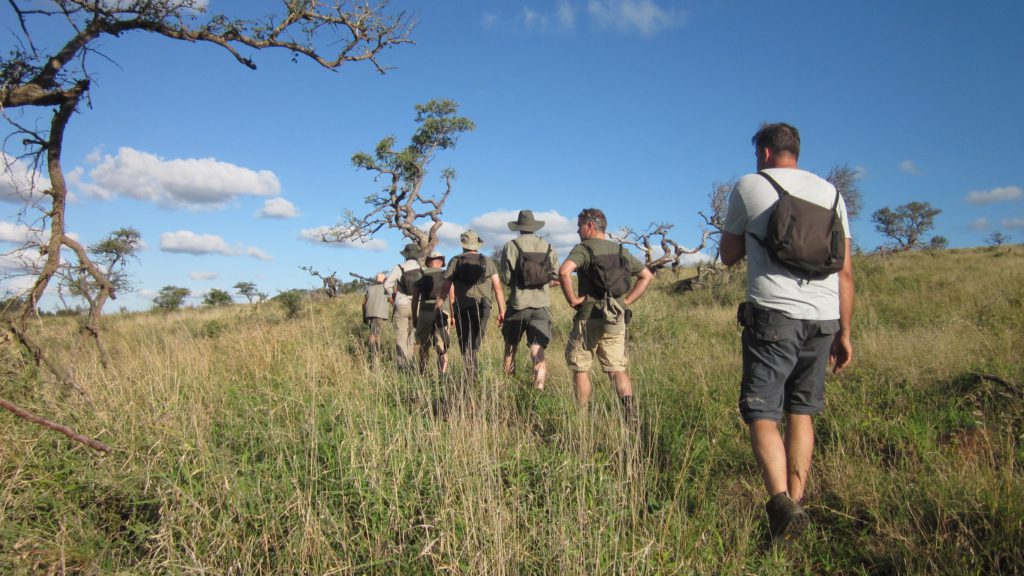The power of nature on natural leadership
Years ago, the founding fathers of the Foundation for Natural Leadership (FNL) Herman Wijffels, Anthony Burgmans and Johan Bontje realized that the power of nature on personal leadership is unprecedented. Meanwhile there is also scientific evidence for the positive effects of their famous wilderness trails on leadership. Will a sustainable change from leadership style to natural leadership, also known as authentic leadership, contribute to the ‘new normal’ for current and future generations?
In his PhD research, Boy van Droffelaar focuses on the effects of wilderness trails on long-term leadership development. He began this research in 2012, after having participated in a trail himself for the first time three years earlier. Van Droffelaar: “For me it was a life-changing experience, in which I especially learned to strengthen my self-reflective capacity – connecting with yourself in order to be able to connect with others (leadership) – and I became much more sensitive to the preservation of nature and to situations that happen in my environment. Moreover, I discovered the power of silence.”
The research consists of three parts: (a) how do participants look back on the trail, (b) what is the effect on their leadership behaviour and (c) what do they do with it in practice.
The qualitative analysis – based on nearly one hundred trail reports – in the first study revealed that insights from peak experiences during the trail are characterised by increased self-knowledge, awareness of one’s own core values, importance of paying attention to one another, and consciously living in the here and now. For example, one participant wrote: ‘I felt deeply that sincere and complete attention to the other is essential, with all my senses, as is needed in the wilderness’.

These peak experiences led to insights and intentions to change one’s own future leadership behaviour. These intentions then turned out to resonate almost one-to-one with the four pillars of authentic leadership: self-awareness (“I know who I am”), internalised moral perspective (“This is what I stand for”), balanced processing of information (“I listen with an open mind and heart to all stakeholders”) and relational transparency (“I say what I think and feel, and dare to be vulnerable”).
The second, quantitative, study (n=66) longitudinally tested intra-personal change towards authentic leadership before, 3 months after, and one year after completion of the training program. All components of authentic leadership were found to increase significantly with a significant effect size. The findings clearly demonstrate that a nature-based program can increase authentic leadership.
The third study involved a qualitative analysis of 36 interviews with former trail participants who had been on trail on average of six years ago. The analysis of interviews showed that all participants had emotional, episodic memories of their experiences in the wilderness. According to the participants, this generates peace of mind and gives direction to leadership. And this can happen quite often, they told Van Droffelaar, sometimes even daily. For example, one participant said, “Every time, the image of the silence and the feeling of calm in the mountains gives me inner peace, from which I can operate with confidence.”
Moreover, the people interviewed feel that the episodic memories have led to lasting changes in their leadership behaviour. In their organisations, according to the participants, this has led to an increase in mutual trust, more attention to personal development, and thus to an increase in the creative and innovative capacity and a higher degree of commitment to the mission of the organisation.
“I am delighted that I can now actually help FNL with scientific recognition of the work they do. Our society urgently needs more better leaders. It gives me great pleasure that I can scientifically substantiate that this approach works,” says van Droffelaar on the occasion of his PhD.

